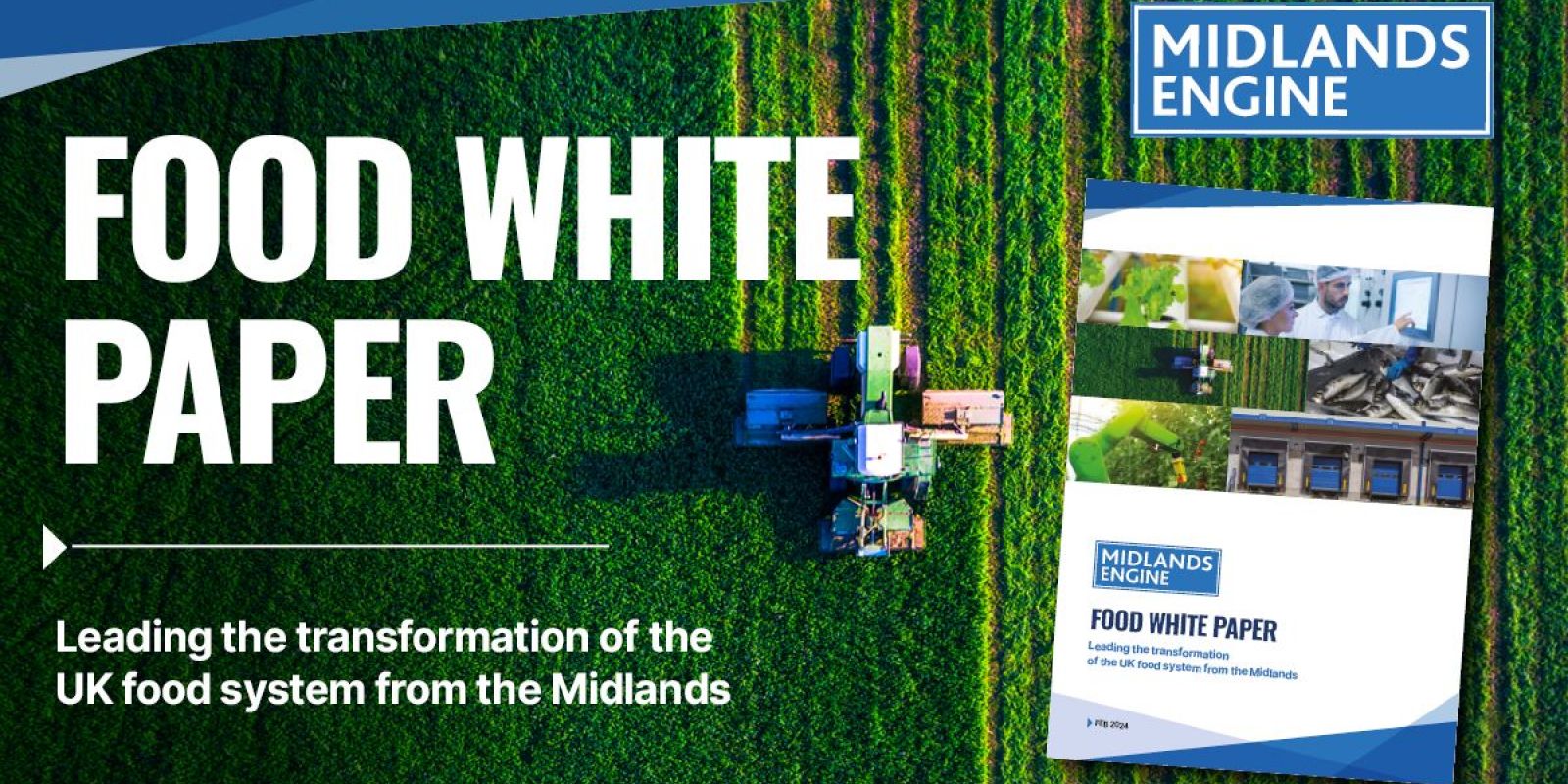Midlands Engine partners launch Food White Paper
The Midlands Engine launched its Food White Paper on 27th February at the unveiling of SmartParc SEGRO Derby’s new energy centre.
The Food White Paper is the product of months of collaboration between over 100 food system partners led by the Midlands Engine Partnership, the Midlands Future Food Alliance and Collison & Associates.
Food industry partners, local and regional leaders, and civil servants attending the launch also heard keynote speeches from Midlands Engine Chairman, Sir John Peace and SmartParc CEO, Jackie Wild.
The Food White Paper sets out how the innovation and expertise of the Midlands, with its leading agri-tech clusters, offers the solutions and opportunities necessary for sustainable food system growth.
The White Paper identifies why the Midlands is pivotal to the UK food system:
- Produces more food than any other region including 39% of vegetable and salad crop and 41% of poultry production in England and over 70% of fish processing
- Home to 52% of the UK’s larger food and drink manufacturing businesses
- Home to the UK’s food logistics and distribution hub
- At the forefront of agri-food innovation, attracting nearly a third of Innovate UK funding awards since 2005
The White Paper identifies eight recommendations detailing how industry, academia and public sector partners can come together, with national government, to co-create and bring forward a long-term transformative plan for sustainable food system growth, in four themes:
- Investment - increasing investment and accelerating the agricultural transition
- Business support and trade – building on existing regional expertise and supporting the development of trade in food and drink products and technology used in industry
- Innovation and skills – a globally competitive food systems innovation partnership and multi-year collaborative R&D programme and a supportive workforce supply plan
- Infrastructure and premises – increased investment in Midlands infrastructure as the UK’s food production and distribution hub and a more enabling planning system
The Food White Paper includes 17 regional case studies featuring the expertise and experience of partners, including:
- The Seafood Grimsby and Humber Alliance cross–industry group of stakeholders developing a decarbonisation roadmap for the seafood supply chain in line with the Paris Agreement.
- Centre for Doctoral Training (CDT) in Agri-Food Robotics led by University of Lincoln and the new CDT in AI for agri-tech, the SUSTAIN programme, both led by the University of Lincoln.
- The ‘Reverse Coal’ programme at Pollybell to radically decarbonise farming on the 2,000ha Lapwing Estate whilst sustaining food production.
- Dyson Farming’s Fruit Farm in Carrington near Boston, a world leading greenhouse soft fruit producer, using sustainable heat and CO2 from an AD plant and robotics.
- Lincolnshire Institute of Technology which is working to increase take-up of STEM courses amongst 16 to 18 year olds with a focus on the food and engineering sectors.
- Magnavale’s new UK leading 101,000 pallet cold store just off the A1 at Easton, near Grantham.
- Bridge Farm in Spalding which grows more than 70 million plants each year in a low-carbon, water-efficient glasshouse.
The White Paper and supporting evidence and case studies can be viewed at: Exploring the Impact of Food & Agri-tech on the Midlands | Midlands Engine



